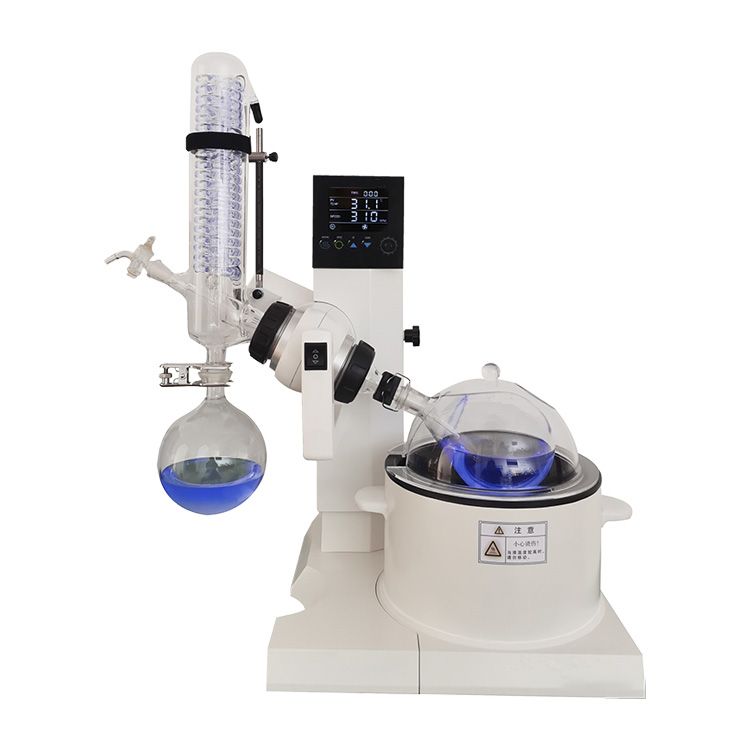Rotary evaporators have revolutionized botanical extraction processes by enhancing efficiency, precision, and quality in the extraction of valuable compounds from plant materials. Traditionally, botanical extractions were labor-intensive and time-consuming, often involving simple distillation methods that were less efficient and more prone to thermal degradation of sensitive compounds. However, with the advent of rotary evaporators, the extraction process has been streamlined significantly. A rotary evaporator, often referred to as a rotovap, operates on the principle of reduced pressure and gentle heating to evaporate solvents from a solution. The core of this technology is its rotating flask, which creates a thin film of liquid that maximizes surface area for evaporation. This design not only speeds up the evaporation process but also lowers the temperature required, which is crucial for preserving the integrity of heat-sensitive compounds found in botanical materials. In botanical extraction, the rotary evaporator plays a pivotal role in concentrating and purifying essential oils, cannabinoids, terpenes, and other phytochemicals.

The reduced pressure within the system allows solvents to evaporate at lower temperatures, thus minimizing the risk of thermal degradation. This is particularly important when dealing with compounds that have low boiling points or are prone to decomposition under heat. By avoiding high temperatures, rotary evaporators ensure that the active ingredients are preserved in their most potent and pure form. The efficiency of GWSI rotary evaporators also extends to the recovery of solvents. The closed system of the rotovap allows for the collection and recycling of solvents, which not only reduces waste but also cuts down on operational costs. This feature aligns well with the growing emphasis on sustainability and eco-friendliness in botanical extraction practices. The ability to reclaim and reuse solvents makes rotary evaporators a more environmentally responsible choice compared to traditional extraction methods. Another advantage of rotary evaporators is their ability to handle large volumes of extracts with high precision.
The consistent quality of extracts produced using rotary evaporator is another key benefit, as the controlled conditions reduce variability and enhance reproducibility. Furthermore, rotary evaporators come equipped with advanced features such as automated temperature and pressure controls, which simplify the extraction process and reduce the need for manual intervention. These features not only improve the overall efficiency of the process but also ensure that the extraction conditions are optimized for the best possible yield and quality of the final product. In summary, rotary evaporators have significantly transformed botanical extraction processes by providing a more efficient, precise, and sustainable method for obtaining high-quality extracts. Their ability to operate at lower temperatures, recover solvents, and handle various volumes makes them an indispensable tool in the modern botanical industry. As the demand for natural and high-quality plant-based products continues to grow, the role of rotary evaporators in advancing extraction technologies and maintaining product integrity will undoubtedly become even more critical.